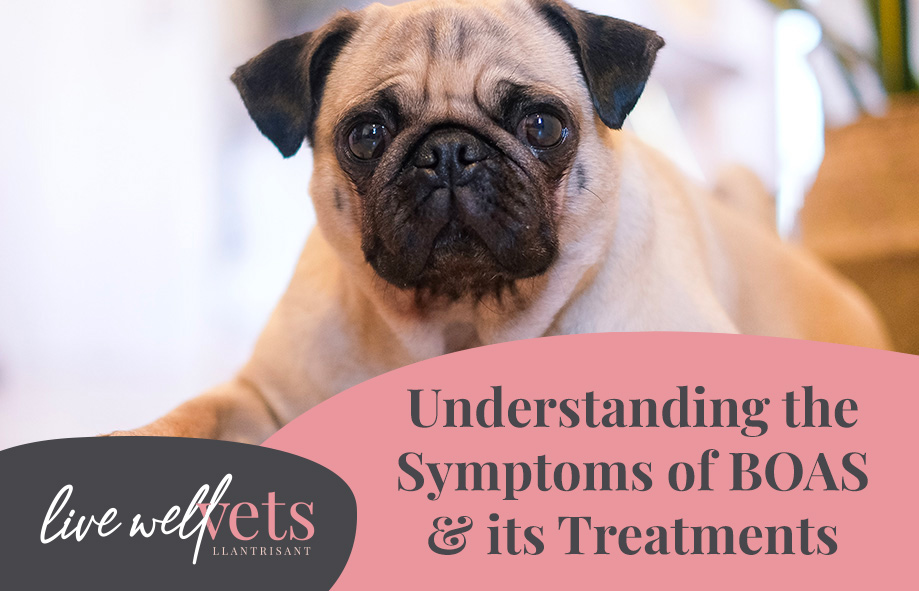What does BOAS stand for?
Brachycephalic Obstructive Airway Syndrome
What is BOAS?
Brachycephalic Obstructive Airway Syndrome (BOAS) is a respiratory disorder that occurs in certain dog breeds with short snouts, including English Bulldogs, French Bulldogs, Pugs, and Boston Terriers. These breeds are known as brachycephalic breeds, which means they have a flat, wide skull shape with a compressed nasal passage and a shortened airway.
BOAS occurs when the brachycephalic dog’s airway is obstructed, which can make breathing difficult, noisy, and laboured. The obstruction is caused by a combination of anatomical abnormalities, including narrowed nostrils, elongated soft palate, and a hypoplastic trachea. These abnormalities can lead to respiratory distress, especially during exercise or in hot and humid conditions.

Symptoms of BOAS may include:
- Snoring or noisy breathing during rest
- Difficulty breathing, especially during exercise or in hot weather
- Gagging, choking, or retching
- Exercise intolerance
- Cyanosis (blue or purple tongue or gums)
- Collapse or fainting
BOAS is a progressive condition, meaning it may worsen over time. It can lead to chronic respiratory problems, such as chronic bronchitis or pneumonia, and can reduce a dog’s quality of life. It is a complex condition which also often results in gastrointestinal symptoms like regurgitation, and chronic regurgitation could be a warning sign.
To diagnose BOAS, a vet will perform a physical exam, including an evaluation of the dog’s respiratory system. X-rays and other diagnostic tests may be necessary to evaluate the severity of the obstruction.
Live Well Vets have an experienced team who carries out BOAS assessments and diagnosis.

Treatment for BOAS may include:
- Weight management: Obesity can exacerbate BOAS symptoms, so weight management is crucial.
- Environmental management: Owners should avoid exposing their brachycephalic dogs to hot and humid conditions, as well as situations that may cause excessive excitement or stress.
- Surgery: In many cases, surgery may be necessary to correct anatomical abnormalities and improve airflow.
- Medications: Bronchodilators and anti-inflammatory medications may help alleviate respiratory symptoms.
Get more information about BOAS Surgery and how it could help your dog
We'll call you back...
We'll give you a quick call to book an appointment or arrange a call with one of our specialists at a time that is convenient.
When completing this form you’ll be added to our mailing list. We send useful email updates every now and then, including helpful articles about your pet, news about our practice and special offers. We will never share your data with anyone, and you can opt out at any time.



